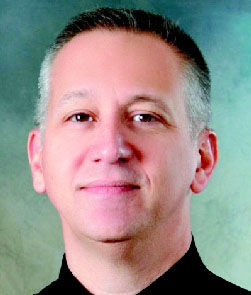
Some say it might take a board to hire a chief
August 22, 2015
Sheriff to review dispatcher’s online rant
August 24, 2015U.S. Senator Bill Cassidy, R-LA, gave Bayou Region government and business leaders an overview of the hot-button issues being tackled by legislators in the nation’s capital at the Bayou Industrial Group’s meeting Monday.
Cassidy spoke briefly on the issues of coastal restoration, affordable healthcare, greenhouse gas emission regulation, the Iran nuclear deal, Planned Parenthood and tax reform.
Below is a summary of what he said:
• The EPA has proposed a reduction in the allowable levels of ozone gas created when air pollutants are released into the atmosphere. Cassidy said Democrats and Republicans are divided on the issue, with Democrats supporting more stringent emission limits and Republicans against them.
Cassidy said even current emissions regulations have led many companies to move jobs to China or India. He said large companies will buy smaller ones merely for the smaller company’s emissions credits, which are transferable from company to company, closing the company down and taking the credits for their purposes. Meanwhile, the smaller companies will move out of the country and take their jobs with them.
The proposed guidelines would have an especially deleterious effect to industry in the Bayou Region, he said.
• Cassidy said that the Universal Care Act, commonly known as Obamacare, is making pharmaceutical and medical companies richer at the expense of small business owners. Cassidy used one business owner in Caddo Parish as an example. He said the man has 17 employees, the company’s health insurance premium rose 20 percent, their deductibles are $6,000 and the business owner is now being forced to cut many of his employees’ hours to part-time and laying one person off.
“A woman tells me yesterday she used to pay $7 for her diabetes medicine a month and now its $15,” Cassidy said. “Now this is touching each one of us.”
• Cassidy, who sits on the Senate Committee on Energy and Natural Resources, said the committee has approved two bills aimed at growing the country’s energy sector. He said one bill, the Offshore Production and Energizing National Security Act of 2015, would open many outer-continental shelf waters to offshore exploration and drilling. More importantly, if passed, the bill will allow the U.S. to export crude oil.
He also said the bill would provide greater national security because the U.S. would be less dependent on oil exports from the Middle East, funneling less money to countries that mean America harm.
Another bill recently passed by the House of Representatives, Cassidy said, is one that would force the U.S. Department of Energy to expedite applications for the exportation of liquefied natural gas.
• Cassidy said that the nuclear arms non-proliferation deal struck between the Obama Administration and Iran is a bad deal for the United States. Despite the fact the agreement freezes Iran’s nuclear program for now, it may be disastrous in the future.
Cassidy said that even if Iran developed a nuclear weapon today, they still lack the intercontinental ballistic missile technology they would need to attack the U.S. But the deal allows Iranian scientists to develop ICBMs because they will be free to attend international conventions where they can acquire the necessary knowledge to do so.
Cassidy also said that increasing oil and gas exports would put the U.S. in a better strategic position because we produce many of the same types of crude oil.
“So from a purely American perspective I will oppose it because I think it has risks for us that the President doesn’t speak of and he’s just hoping that the Iranians will become the good neighbors that we all hope they could be,” Cassidy said.
CASSIDY







